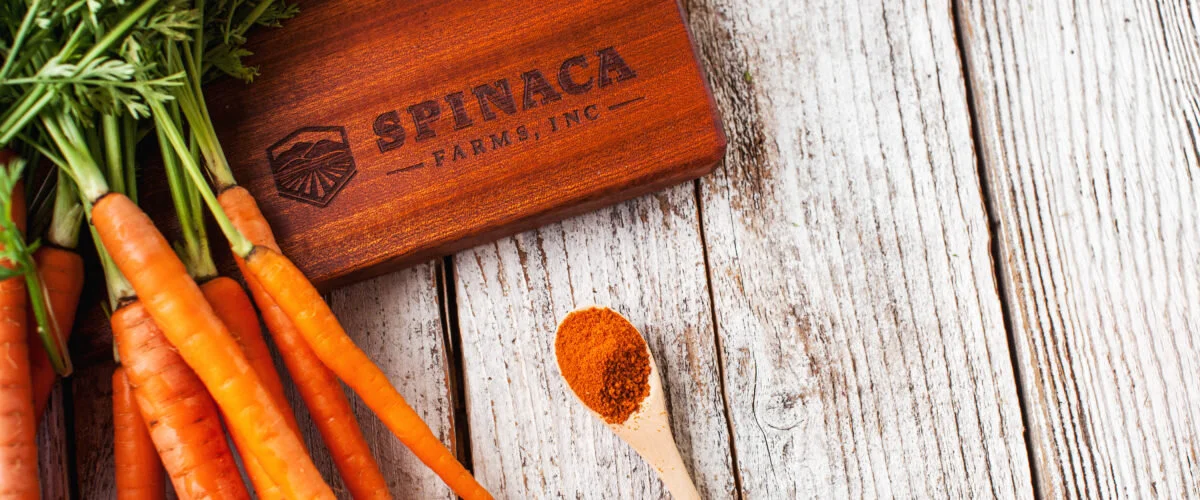Visit any health food store and scan the labels on different meal replacement drinks. The majority of those ingredients? They hail from China, Egypt, and India, countries that historically lack transparency with truth in ingredients.
Read MoreGilroy, CA, April 16, 2018—Spinaca Farms, known for growing, packing and procuring conventional and certified organic produce for the fresh market, announced the launch of their Root-to-Shoot program that maximizes crop utility for American farmers while supplying high-quality domestic vegetable products to the rapidly expanding functional foods market.
Read MoreThroughout 2017, we hammered on the science-based health benefits of eating beets, kale, and broccoli, discussed different modalities for getting our greens, and even discussed whether eating greens is healthful for dogs and cats.
Read MoreIf you’ve set foot in a grocery store or juice bar in the last decade, you’re aware that kale is having something of an extended moment in the spotlight. A relative of cauliflower, broccoli and Brussels sprouts, this hearty veggie is the all-star of leafy greens.
Read MoreEver notice how Fido or Furball sometimes munches on grass or weeds? It turns out dogs and cats like their greens just as we humans do. Though their diet should be primarily comprised of protein, pets also eat plant matter for digestive aid, nutrients and detoxification. When their body needs it, they make use of whatever’s handy (including―but not limited to―your lawn).
Read MoreIf you count potato chips, a lot of Americans have been eating a semi-plant-based diet for years… which begs the question: What exactly is a plant-based diet? Researchers at the American College of Cardiology recently studied three iterations of plant-based diets to find that, while a higher intake of whole grains, fruits, and vegetables was associated with a “substantially lower risk of heart disease,” a plant-based diet that emphasized “less healthy plant foods like sweetened beverages, refined grains, potatoes and sweets had the opposite effect.”
Read MoreFamiliar with the sulfuric odor of a broccoli field? (We certainly are!) That stinky smell actually comes from sulforaphane, a compound present in cruciferous vegetables like broccoli, Brussels sprouts, cauliflower, and kale.
Believe it or not, this malodorous component has been shown to inhibit the development and growth of cervical, pancreatic, hepatocellular carcinoma and ovarian cancer cells in the human body.
Read MoreSure, they’re delicious pickled, pureed into soups, and sliced over salads, but what about beet health benefits? Did you know beets also pack a powerhouse of nutrients for brain and body performance? Athletes swear by the root vegetable’s ability to increase blood flow, enhance tolerance of intense exercise and sharpen their brains’ cognitive function. So, what is the almighty beet’s healthy secret? Turns out there are a few.
Read MoreWe all know dark, leafy green vegetables are good for us. Every day, studies and articles tout the nutritional benefits of consuming foods like kale, spinach and broccoli, which are rich in vitamins, antioxidants, fiber, iron, magnesium, potassium, and calcium, and low in carbohydrates, sodium and cholesterol. In other words, we understand why they’re called superfoods.
Read MoreCan you tell the difference between a functional food, a dietary supplement and a nutraceutical? Most people are aware that what they eat affects their vitality and lifespan, but have no idea where the line between food and drugs really lies. As we’ve discovered, the definition of nutraceuticals vs supplements and functional foods overlap quite a bit, but each retains its own niche in the modern food industry.
Read More











